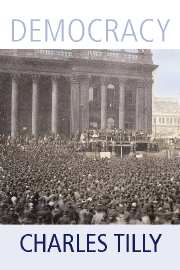1 - What Is Democracy?
Published online by Cambridge University Press: 05 June 2012
Summary
In 1996, five years after Kazakhstan broke away from the crumbling Soviet Union, Kazakh president Nursultan Nazarbayev had his counselors draft a new constitution. A nationwide referendum for its approval received overwhelming support. The new constitution's very first article declares that:
1. The Republic of Kazakstan [sic] proclaims itself a democratic, secular, legal and social state whose highest values are an individual, his life, rights and freedoms.
2. The fundamental principles of the activity of the Republic are public concord and political stability, economic development for the benefit of all the nation; Kazakstan patriotism and resolution of the most important issues of the affairs of state by democratic methods including voting at an all-nation referendum or in the Parliament. (Kazakh Constitution 2006)
That prominent mention of “public concord and political stability” calls up the image of a vigorously vigilant ruler rather than a standoffish state. Nevertheless, the constitution explicitly calls Kazakhstan a democracy.
Outside observers dispute Kazakhstan's claim. The New York–based democracy-monitoring organization Freedom House annually assigns every recognized country in the world ratings from 1 (high) to 7 (low) on both political rights and civil liberties (Gastil 1991). Box 1-1 sums up the Freedom House criteria. They cover a wide range of citizen's rights and liberties, from institutionalized opposition to personal freedom. In 2005, the Freedom House report gave Kazakhstan a 6 (very low) on political rights and a 5 (almost as low) on civil liberties.
- Type
- Chapter
- Information
- Democracy , pp. 1 - 24Publisher: Cambridge University PressPrint publication year: 2007



